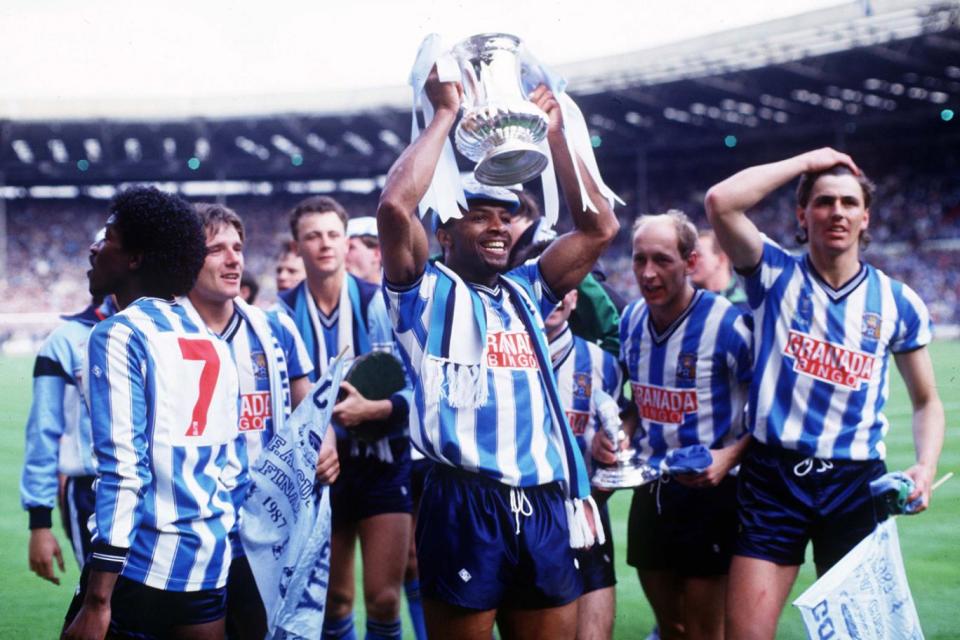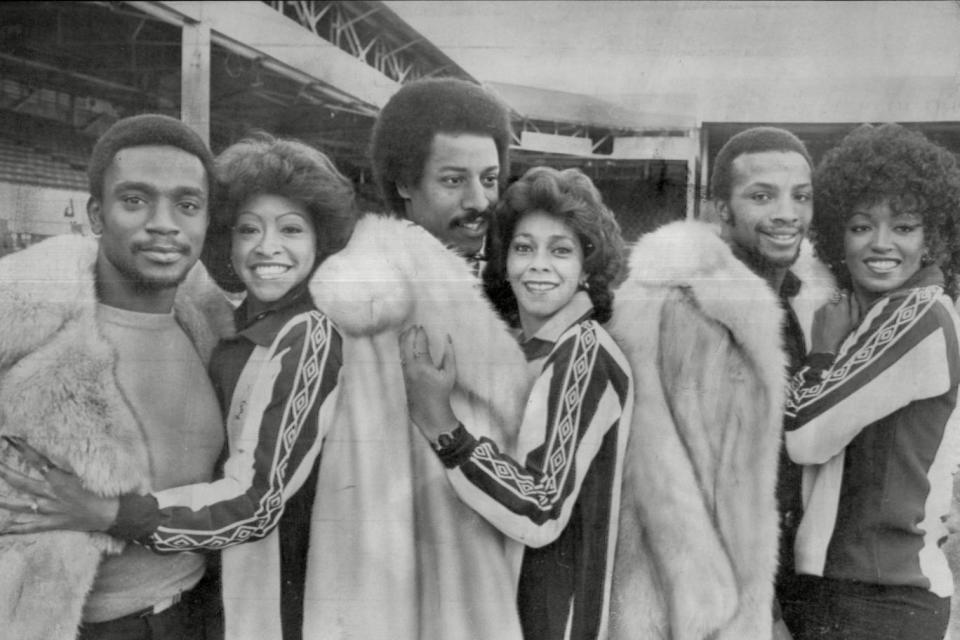Cyrille Regis was not only a brilliant striker but a pioneer for black footballers
For those who saw him play - and especially the black players who followed him into English football - Cyrille Regis was an inspiration.
The former West Bromwich Albion striker, who died on Sunday at the age of 59, was part of the first wave of Afro-Caribbean footballers who changed the face of the sport in this country. He was a key figure in the transition from an all-white game to the multicultural competition that is today’s Premier League.
He was a boy’s own hero, a burly centre-forward with a delicate touch and a forceful shot. He leapt to fame as part of Albion’s dynamic side of the late 1970s. The team featured three black players. When Regis, Laurie Cunningham and Brendon Batson took to the pitch, it sent the racists on the terraces into a frenzy. Stadiums erupted in monkey chants and abuse directed towards the trio. It was common for the opposition - and even colleagues - to hurl racial slurs in their direction. Their brilliance was no defence against bigotry.
Regis and his two team-mates were treated as a novelty. They quickly acquired a nickname: ‘The Three Degrees’. This, itself, had dubious undertones. It was the name of a group of female American soul singers. At a time when football mythology said that black players were lazy and could be unnerved by physical contact or cold weather, the effeminate moniker played into the crank theories of those who questioned their manhood.

Opponents would attest to their toughness. Regis scored 158 League goals in a career that took in six clubs over 19 years. He led the line with power and aggression. Cunningham - who died in a car crash in 1989 - was a supremely talented winger who earned a move to Real Madrid. Batson was an organised and stylish full-back who has gone on to have a long career in football administration.
Their effect was electrifying. West Brom finished third in the league in 1978-79. The two sides above them were Liverpool, the reigning European champions when the season began, and Nottingham Forest, who would end the campaign by winning the European Cup. West Brom were arguably the third best team on the continent.
Regis scored the goal of the season in 1982, a magnificent piledriver against Norwich City in the FA Cup. The striker took the ball on his chest near the centre circle, turned and charged towards goal before unleashing a thumping shot.
He won five caps for England and an FA Cup winners’ medal with Coventry City. Yet he will be remembered for his cultural impact. After moving from French Guiana as a toddler, Regis grew up in north London in Stonebridge, an area with a large black population. He was spotted by West Brom scouts while playing for Hayes in the Isthmian League and moved to Birmingham, another ethnically diverse area.
This part of the West Midlands was at the centre of racial debate in the 1960s and 70s. Enoch Powell, the MP for the neighbouring Wolverhampton South West constituency, played on fears of immigration in his infamous ‘Rivers of Blood’ speech in 1968 that predicted race war.
It was ironic - and gratifying - that just a handful of miles away from where Powell and his acolytes spewed out their hate, Regis and his team-mates were breaking the dam that held back black footballers. There were no rivers of blood, just a flood of talented minority players who illustrated multicultural society at its best.

Before Regis, Cunningham and Batson, black players were a rarity. Within five years of Regis’s debut in 1977, players with Afro-Caribbean heritage were a familiar sight across the country. It was still a harsh environment but the change had begun. Almost to a man, the younger black players who came after Regis credit him with being a groundbreaker.
Intolerance and hatred have not gone away but the casual stereotyping of the 1970s barely exists today. The extremist racial theories of the likes of Powell are no longer commonplace. Black culture is visible and prominent. Football, often a weather vane for the nation’s political mood, is vibrantly diverse on the pitch and increasingly so in the stands. The Football Association’s adoption of the Rooney Rule last week promises that the game’s inclusive attitude will continue in the foreseeable future.
Regis’s role in the changes in British society should not be underestimated, even though this engaging and humble man tended to downplay his importance in football and social history. His loss is keenly felt. His legacy will remain for ever.

 Yahoo News
Yahoo News 
